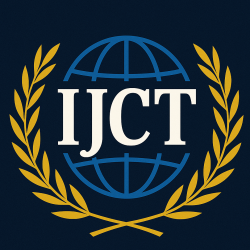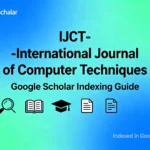
FarmWise: Your Smart Farming Companion – Volume 12 Issue 5

International Journal of Computer Techniques
ISSN 2394-2231
Volume 12, Issue 5 | Published: September – October 2025
Author
Sayali Shinde , Pradnya Koleshwar , Anuja Deore , Shalini Dabhilkar , Dhanashri Dalvi
Table of Contents
ToggleAbstract
Modern agriculture faces challenges ranging from unpredictable weather patterns and pest outbreaks to fluctuating market demands and the impacts of climate change. Farmers require reliable, accessible, and intelligent tools to make informed decisions quickly. This paper presents FarmWise — a prototype web platform designed as a smart farming companion. The platform integrates an AI chatbot, crop health scanner preview, weather updates, a trending agriculture news feed, and a farmer’s market interface. Developed using HTML, CSS, and JavaScript, and powered by free APIs, FarmWise demonstrates how even foundational AI-enabled solutions can enhance decision-making, improve crop health monitoring, and connect farmers with essential market and weather data.The system prioritizes usability and scalability, with features optimized for seamless interaction across various devices. Although currently operating with limited AI capabilities, the platform sets the stage for future integration of advanced analytics, including yield prediction, pest detection, and precision resource management. By bridging information gaps and delivering actionable insights, FarmWise contributes to the ongoing transformation toward data-driven, sustainable agriculture.
Keywords
Smart Farming; Artificial Intelligence (AI); Internet of Things (IoT); Chatbot Advisory Systems; Weather Forecasting; Federated Learning; Sustainable Agriculture; Digital Agriculture PlatformsConclusion
FarmWise is a practical, low-cost prototype that integrates critical advisory services into a single web platform. Prototype evaluation suggests strong potential for improving farmers’ access to actionable information, particularly weather and contextual advisory. However, to transition from prototype to production, FarmWise must (1) incorporate robust disease-detection models validated under field conditions, (2) offer offline and multilingual support, and (3) adopt privacy-preserving learning paradigms to maintain trust. The modular design facilitates these future steps and aligns with recent research advocating human-centred AI and federated approaches in agri-tech.
References
1.Shoaib, M., et al., “Leveraging deep learning for plant disease and pest detection: A review,” Frontiers in Plant Science, 2023. 2.Pacal, I., et al., “A systematic review of deep learning techniques for plant disease detection,” Machine Learning Review, 2024 3.Miller, T., et al., “The IoT and AI in Agriculture: The Time Is Now—A review,” 2025. 4.Singh, N., “Farmer.Chat: Scaling AI-Powered Agricultural Services,” arXiv preprint, 2024. 5.Holzinger, A., Fister Sr., I., Kaul, H.-P., Fister Jr., I., & Asseng, S., “Human-Centered AI in Smart Farming: Toward Agriculture 5.0,” IEEE Access, 2024. (original reference included in your paper) 6.Qazi, S., Khawala, B. A., & Farooq, Q. U., “IoT-Equipped and AI-enabled Next Generation Smart Agriculture: A Critical Review,” 2022. (original reference) 7.Talaviya, T., Shah, D., Patel, N., Yagnik, H., & Shah, M., “Implementation of Artificial Intelligence in Agriculture for Optimisation of Irrigation and Application of Pesticides and Herbicides,” Artificial Intelligence in Agriculture, 2020. (original reference) 8.Muthumanickam, M., et al., “Smart farming: IoT-Based sustainable Agriculture,” Agriculture, 2022. (original reference) 9.“Agri Assist: An AI Integrated Farmer Assistant,” (article), ScienceDirect, 2025. 10.“AI-powered agriculture chatbots for farmers,” research overview, 2024. 11.“IIIT-A researchers develop AI tech for real-time crop disease detection in Indian farms,” Times of India, recent news (example of federated/local learning deployment in India). AP News, “How AI is helping some small-scale farmers weather a changing climate,” 2025 (deployment of chatbots in Malawi).
IJCT Important Links
© 2025 International Journal of Computer Techniques (IJCT).
Related Posts:










